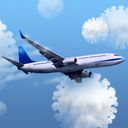Airlines pack in customers like there's no coronavirus

Published Date: 5/20/2020
Source: axios.com
As restaurants, department stores and other local businesses grapple with operating at half occupancy (or less) to comply with social distancing guidelines, airlines are packing customers to near capacity on a reduced number of flights.Why it matters: The practice shows how a lack of a national policy allows certain companies — like airlines — to continue to put Americans at risk for exposure to COVID-19 while other companies miss out on revenue by adhering to local regulations."If you look back at SARS in 2003, this issue of planes being a spreader of the virus has been well-known," Paul Tharp, an attorney specializing in negligence and liability at North Carolina's Arnold & Smith law firm, tells Axios.Unless Congress passes rules shielding the airlines from liability — as Senate Republicans have discussed — they could face a complicated legal situation, Tharp adds.How it works: In March, many airlines reduced the number of flights they offered by as much as 90% through the end of May, and as travel demand has picked up, they've simply loaded new passengers onto the few remaining scheduled flights.They could reinstate laid off pilots and restart flights in order to accommodate newly increased demand, but have chosen not to."Airlines have very significant flexibility to adapt their route networks even during this extraordinary period," a Department of Transportation spokesperson tells Axios. The big picture: Policymakers have created local ordinances for land-based businesses and public transit services that require new layouts to reduce the number of people. Airlines have had no such oversight — and they're seeing fewer customers simply because fewer people want to fly. As a result, they've created a patchwork of rules that are often merely suggestions. Delta, for example, instituted a rule "capping seating at 50% capacity in first class and 60% capacity in the main cabin and keeping middle seats blocked."American Airlines, on the other hand, has a policy to "not assign 50% of main cabin middle seats or seats near flight attendant jump seats." However, it does not put a hard cap on bookings and maintains the right to "use those middle seats when necessary."American's representatives have told passengers that flights will only be booked at 50% capacity, but is not enforcing that cap and has been operating flights with nearly every seat filled.United said it will allow passengers to rebook or receive a travel credit if they end up on flights that are close to full capacity.What they're saying: Sen. Maria Cantwell (D-Wash.), ranking member of the Senate Committee on Commerce, Science and Transportation, sent a letter this week to Transportation Secretary Elaine Chao urging her department to issue uniform national social distancing guidelines for the aviation sector. The guidance "should clearly lead the airlines to either keep middle or adjacent seats open, or limit capacity of aircraft to a level that allows adequate social distancing," she says.Her letter referenced many outraged tweets from passengers on packed flights.By the numbers: The aviation industry has been the economic sector most impacted by the lockdown in terms of activity.Net bookings were down 92% year over year, according to airline trade group Airlines for America; net booked revenue was down 98% for the week ended May 10.Transportation Security Administration agents screened 253,807 passengers on Sunday. That's just 9.6% of the total from a year ago, but up 50% from the number of passengers on Sunday, April 26.